
Founder Rana Abdelhamid (third from left), continues to lead Malikah’s mission to create safety and power for women in Queens. Photo by Ramy Mahmoud
May 13, 2025 By Taliah Gabriel
All women and girls deserve to feel safe—and thanks to Malikah, many in Queens are beginning to feel more empowered than ever.
Malikah is an Astoria-based, women-led grassroots nonprofit dedicated to combating violence and building power and safety for all women and girls.
Originally launched as a program, Malikah has grown into a multifaceted organization offering self-defense training, healing justice, financial literacy education and community organizing programs. The group also runs a mutual aid hub, helping to combat food insecurity through free meal distribution and cash assistance.
While Malikah primarily focuses on middle-class, working North African women, it extends services to all women from marginalized communities. Its programs aim to address systemic inequality and empower women to reclaim their safety and agency.
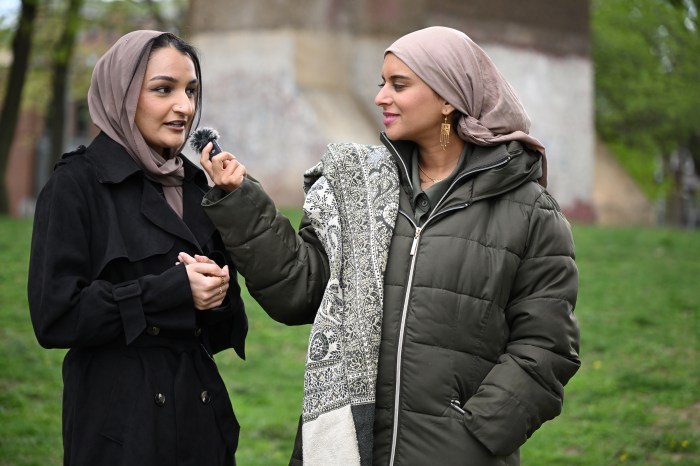
Rana Abdelhamid (right). Photo by Ramy Mahmoud
Malikah was founded by Rana Abdelhamid, who now serves as the organization’s executive director. Abdelhamid started the initiative after experiencing hate violence as a teenager growing up in post-9/11 Queens.
“I grew up in a post-9/11 New York and at the time there was an uptick in hate-based attacks impacting Muslims, particularly Muslim women because of the visibility of our identity, the hijab. Unfortunately, I was assaulted as a teenager for wearing a hijab when I was walking down the street in Queens and that experience empowered me to try and think about the safety for my community more broadly,” said Abdelhamid.
Following the attack, she drew on her years of karate training to teach self-defense as a method of empowerment and protection. Since 2010, Malikah has trained nearly 4,000 people across 35 countries in self-defense.
In addition to self-defense classes, Malikah offers a range of services that have had a measurable impact on the Queens community. The organization’s direct service work has reached more than 15,000 people through programs such as the Astoria Halal Community Fridge, food distributions, and financial support for those struggling with rent, legal fees, and other essential costs.
“Some of my favorite programs is the Pilates class,” said Mariama M. “Every Sunday they have a Pilates class; it’s very accessible and it’s in a space where it’s only us Muslim women.”
Malikah also hosts a variety of community-building events throughout the year, including the Ramadan Queens Night Market, the Astoria Halal Fest, and, most recently, the Sham-Al-Naseem Picnic held on April 27 in Astoria Park.
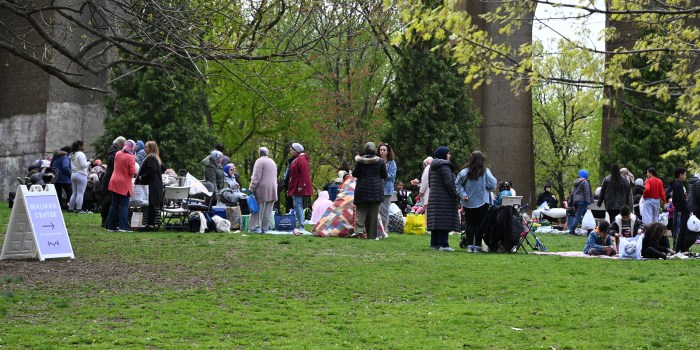
Participants gather for Malikah’s Sham-Al-Naseem Picnic in Astoria Park on April 27. Photo by Ramy Mahmoud
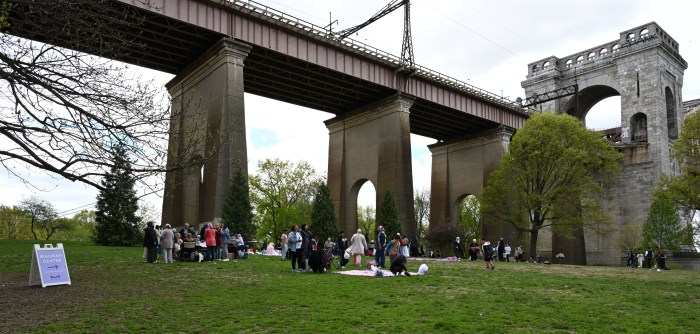
Photo by Ramy Mahmoud

Photo by Ramy Mahmoud
The spring picnic featured food, music, and activities designed to celebrate the season and bring people together. Children enjoyed face painting, frisbee, egg decorating, and a bunny hop race. The event drew attendees from the Malikah Center, longtime community members, and first-time visitors like Khadyd D.
“I like that it’s inclusive for all ages and people,” said Khadyd, who attended the picnic with friends.
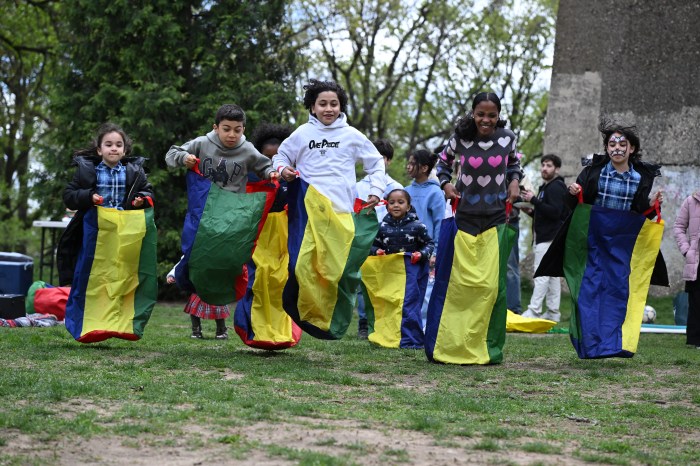
Community members enjoy spring activities at Malikah’s family-friendly picnic in Astoria Park. Photo by Ramy Mahmoud
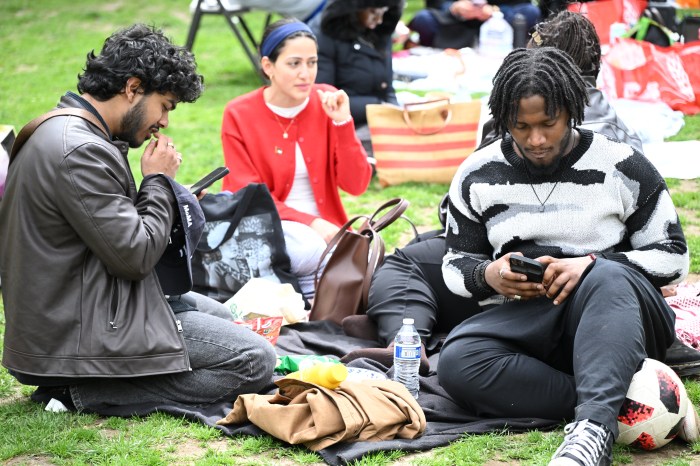
Photo by Ramy Mahmoud
Malikah continues to support Queens residents amid broader political and social challenges, including national debates over diversity, equity, and inclusion (DEI). Abdelhamid believes that attacks on DEI policies—like those advanced by former President Donald Trump—will not deter Malikah’s mission.
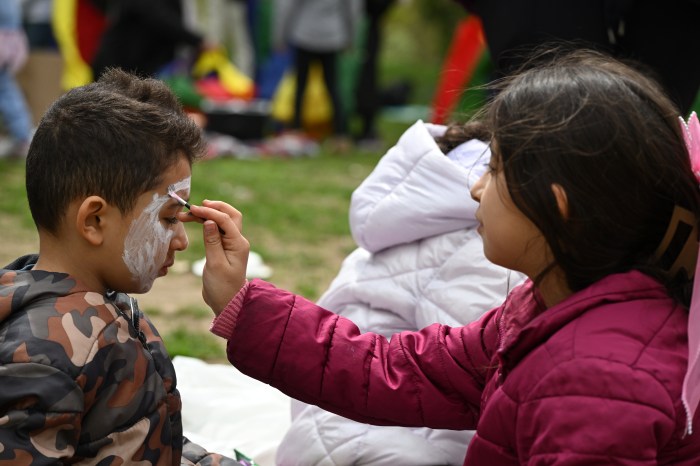
Face painting, food, and community spirit at Malikah’s Sham-Al-Naseem celebration in Astoria. Photo by Ramy Mahmoud
“What I always hope is less demand for our work,” said Abdelhamid, who expressed hope for a future where fewer women feel the need to learn self-defense to feel safe. Still, she noted that such political pressures only highlight the ongoing need for grassroots organizations to address hate violence, deportation threats and poverty.
Looking ahead, Abdelhamid envisions Malikah expanding its cultural footprint with more art galleries, festivals, and joy-centered programs that celebrate heritage and community pride.
